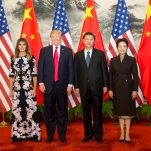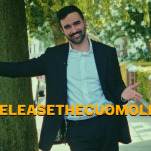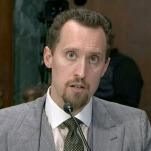Virginia University Will Remove Confederate Flags From Display
A Virginia university will remove Confederate flags from its chapel following protests from black students several months ago.
Washington and Lee University President Kenneth Ruscio said Tuesday he regrets the school’s history of owning slaves and said the flags will no longer be displayed in their current location.
In a letter to the university community, Ruscio wrote that the flags near the statue of Lee in the chapel will be removed and the school will receive, on loan from the American Civil War Museum in Richmond, original flags to display in the chapel’s museum.
“The purpose of historic flags in a university setting is to educate,” he wrote. “In this way, those who wish to view these artifacts may do so, and the stories behind them can be properly told.”
The decision to remove what many view as an offensive symbol is not as clear cut as it might sound. The school is named for Confederate Commander Gen. Robert E. Lee, who served as its president following the Civil War. His crypt is under the chapel, and the flags are replicas of historical battle flags.
-

-

-

-

-

-

-

-

-

-

-

-

-

-

-

-

-

-

-

-

-

-

-

-

-

-

-

-

-

-

-

-

-

-

-

-

-

-

-

-

-

-

-

-

-

-

-

-

-

-

-

-

-

-

-

-

-

-

-

-

-

-

-

-

-

-

-

-

-

-

-

-

-

-

-

-

-

-

-

-

-

-

-

-

-

-

-

-

-

-

-

-

-

-

-

-

-

-

-

-

-

-

-

-

-

-

-

-












































































































